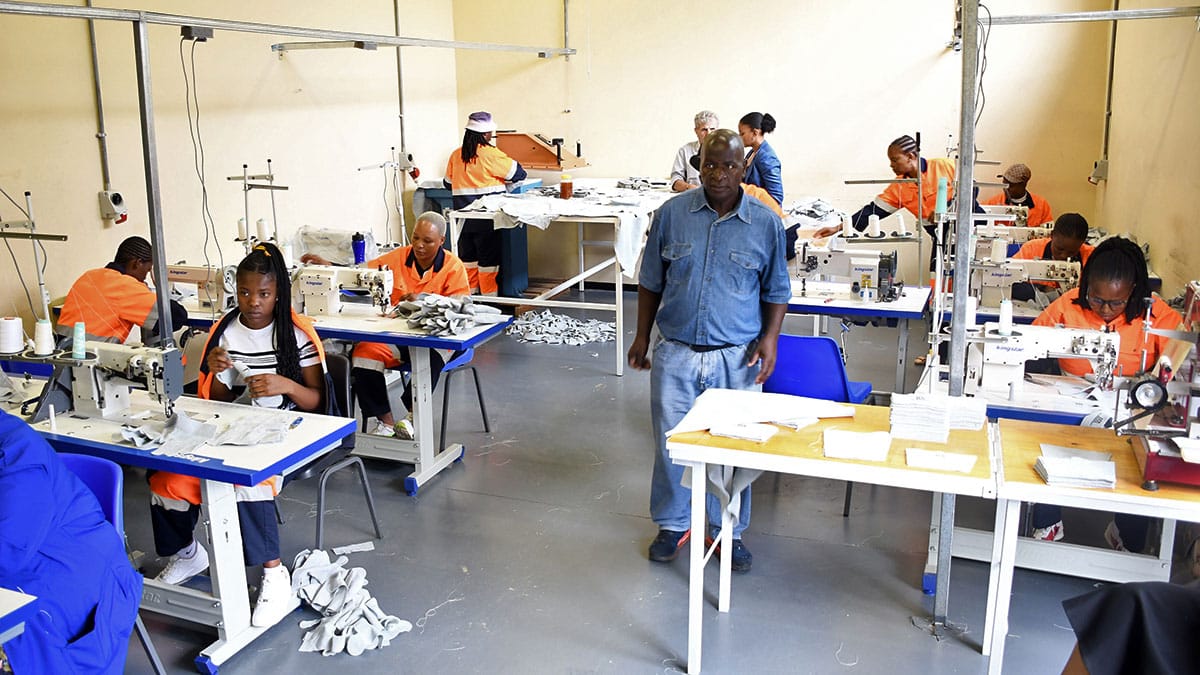The Botswana Chamber of Mines (BCM) is setting ambitious targets for the country’s manufacturing sector, aiming to create 12,000 jobs in the next two years.
BCM Chief Executive Officer, Charles Siwawa, believes that Botswana has the potential to produce high-quality goods that can not only meet local demand but also compete on the global stage.
Speaking at the second edition of the Local Manufacturing Summit in Gaborone last week, Siwawa emphasized the importance of the manufacturing sector as a driver of economic growth.
He pointed out that in many economies around the world, manufacturing has been a key contributor to GDP and job creation.
In Botswana, the manufacturing sector, which includes diamond polishing, textiles, jewelry, and leather products, contributed approximately 5.6 percent to the country’s GDP in 2023.
Despite this, the sector remains relatively modest, constrained by a limited domestic market and a heavy reliance on imported supplies.
To address these challenges, the government has introduced several initiatives aimed at stimulating growth and enhancing the sector’s competitiveness.
These include value chain development projects focused on diamonds, citrus fruits, and soda ash.
“As a country, we are very capable of producing high-grade goods, and I urge the private sector and companies to believe in our capabilities,” said Siwawa. “We want to manufacture to create value through capital retention and create employment here because the sector has the potential to employ many people. Our goal is to create 12,000 jobs in the next two years in manufacturing.”

The Local Manufacturing Summit is a premier event that brings together key stakeholders from the government, private sector, and academia to discuss strategies for advancing Botswana’s manufacturing sector.
President Mokgweetsi Masisi, who also spoke at the summit, highlighted the need for continued economic growth to address persistent challenges such as poverty, inequality, and unemployment.
“In recent years, our economy has faced challenges, resulting in slower growth. We still rely heavily on the mining sector for economic development and job creation,” said Masisi. “However, we should leverage the manufacturing sector to boost our GDP because this sector naturally provides well-paying jobs. We need an annual growth rate of six percent to reach high-income status, and we must increase our productivity levels to achieve that.”
To further support the manufacturing sector, President Masisi announced the creation of a new consultative body, the Botswana Economic Development Board.
This board, chaired by the president, will work to remove bureaucratic barriers that have hindered potential investors in the manufacturing sector.
“The board will address unnecessary obstacles for those seeking to do business in Botswana,” said Masisi. “The manufacturing sector must strive for high levels of production, and we are duty-bound to expand economic activities. I urge the mining sector, which continues to lead in purchasing locally made goods and services, to support the growth of the manufacturing sector.”
The mining sector, through its various operations, has been instrumental in supporting local manufacturing by prioritizing citizen economic empowerment.
This includes the use of locally manufactured personal protective equipment and the subcontracting of citizen-owned companies for specific jobs in the mines.








